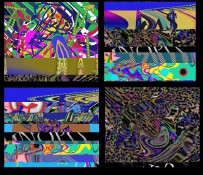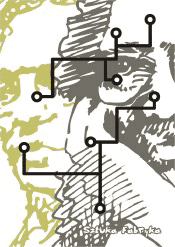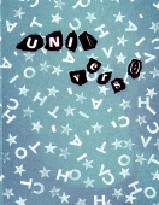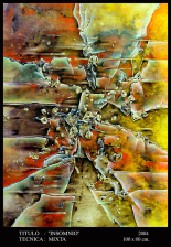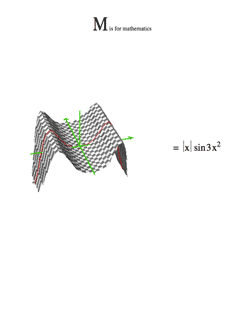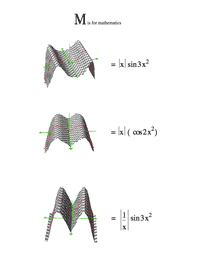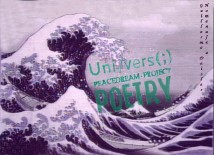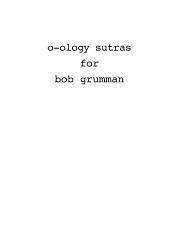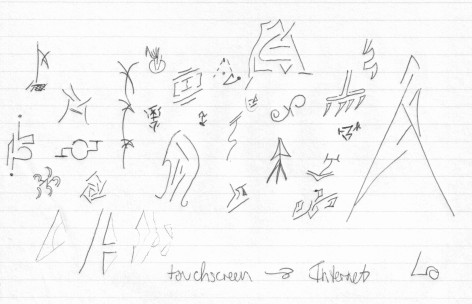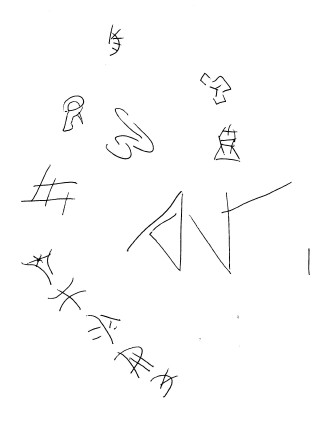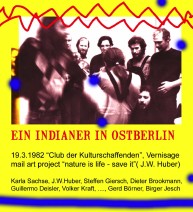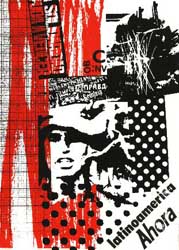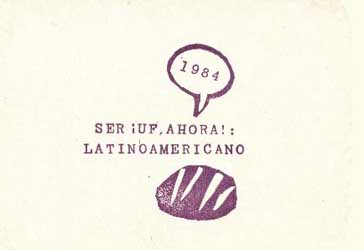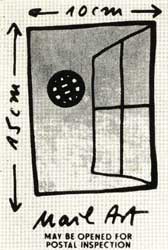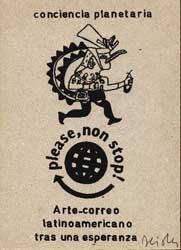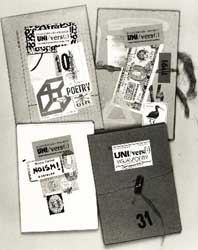|
"moons" - a part of "ZENDOM"
by Karl Kempton |

"dedicated to Guillermo Deisler" Anna Boschi |
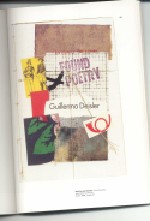
ever arts "from the book Non Kon Form - Deisler contribution" |
Miguel Zenon |
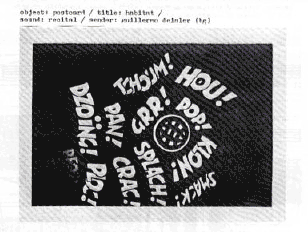
Günther Ruch Some contributions from Deisler at "CLINCH" magazine or "OUT PRESS", Switzerland |
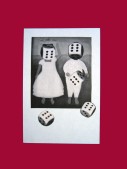
Eduardo Romaguero |
"INSOMNIO"
|
Hans Braumüller
"Performance for Guillermo Deisler" http://www.bildende-kunst-x-virtuelle-poesie-von-hans-braumueller.de/files/poet11.htm Download the Plugin form Realmedia |
|
Karl Kempton
"15 M" - Older Version |
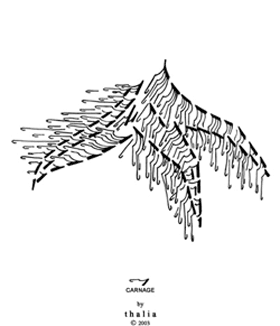
thalia |
Karl Kempton
"15 M is for mathematic" |
|
DD Perso
|
Karl Kempton
"Cosmology" |
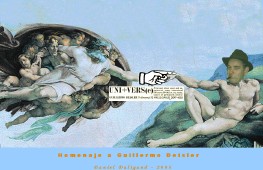
DD Perso |
|
Tim Gaze
"für Deisler" (1998) |
Tim Gaze
"für Deisler (1998)" |
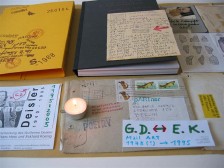
Eckhard Koenig |
Birger Jesch |
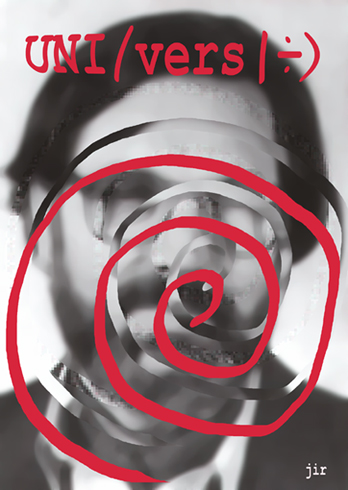
Jorge Ismael Rodriguez |
|
GUILLERMO DEISLER:
10 years after his death by Clemente Padín “IT HAPPENS THAT SOMETIMES I AM TIRED OF BEING A STRANGER” Guillermo Deisler was born in Santiago, Chile, in 1940, an died in Halle, Germany, in 1995. We celebrate this year the tenth anniversary of the death of one of the most important, pioneer and influential poets of the 60s generation. One who was capable of placing Chile in the middle of the alternative art-world scene. In his exile he wrote poems that at first right seemed to allude to his political condition, far from his land and roots. Nevertheless his purpose was directed towards an absolute sameness of land and country, towards a world without frontiers, nationalisms or chauvinism, a world made for “bird-men” who shared an unlimited space in it. From this thought comes his “feather”, his object symbol, a major theme in his exceptional work. Also from it comes his Uni/vers, his cooperative Magazine, the work of Uni/vers(al) men, artists of the universal net (Networking) gathered by Guillermo towards (vers) a Uni/que motherland with no frontiers. At the end of the sixties the centre of the artistic activity was the question of the meaning of language, especially the verbal one. It was attributed to it the unfortunate function of supporting the regime and covering with a veil the oral malformations and scars produced by the current economic system. If was thought that trough its pristine function of representation of reality, it produced, over truth, a deformation adapted perfectly to the necessities of legitimating the systems and that it had been converted into an instrument of subjection serving the social segments that would benefit from that situation. Truth was not anymore the adequate concept for reality but it depended upon “the elegance” in expressing it or upon “the authority and power” of those who spoke. It is the activity of desmystification and accusation of the verbal language that produced experimental and visual poetry and turned them away from alien significants, away from the word that speaks but doesn’t act. It wasn’t a matter of denying language for its sake but it was a matter of reflecting a class system that employed verbal language to dominate and oppress. But on the other hand it responded to the almost natural course of post-modernist, avant-garde poetics, that were expressed through sensorialism (or anti intellectualism) especially with the new impulse given by “poesía visiva” from Italy, of great influence, culminating with Adraino Spatola´s “poesía totale”. If one observes the visual poems produced in Latin America during those days, one will see productions, words and letters, totally disconnected from these senses. To confirm the exception, the Brazilian movement of process poems had as its main goal the creation of poems without words. The poetic production of Guillermo Deisler did not escape from these determinations, including the appropriation of political symbology; the befuddling is not the negation of banal reading. The constant use of collage, a creative instrument that dissolves the sense connections in favor of the disintegration of syntax and rational order. The subject was the subversion of the sense, words as much as images. Art (and poetry) became an instrument of communication that allowed the artist to keep up a fight against dictatorships that were devastating South American countries during those years, and helped to impel its combativeness, but the costs were death, prison , torture, exile… Guillermo and his family had to pay the price also. In spite of that, thanks to postal art, that art never “applauded” that allowed him to face cultural solicitude and isolation, he achieved a real cosmopolitanism that placed him at the crossroads of multiples cultures and could overcome the blockade. Let’s hear him: “For Latin Americans, and we are few now, the creator who voluntarily or impelled by political circumstances, is forced into exile, Postal art becomes the cure, the palliative that neutralizes this situation of “diseased citizens” as Roa Bastos called this massive immigration of the cultural workers of the American Continent ….a sense of integration of various cultures or cultural traits, developed in my work as a natural attitude in observing facts as interaction of an infinity of factors….How they had mixed into myself complementing each others: In the acceptation of the foreign elements and in the quick assimilation manifested in a sort of cohabitation that gave character to our non identity with the absence of pressure and tension” His experimental poetry knew two dimensions: the verbal and the visual, whose sense is rendered trough the signification of words in the first case, and transmitted trough the visibility of signs, in the second, regardless of the verbal contents in them. Let’s see what Guillermo Deisler tells us: “At this stage of credibility of the code as a system of signs to convey information, concept and ideas as part of the ideological charge in its message, the same ideology contained in the code, the problems I approach as fundamental matter in the construction of my visual poetry is fundamentally the written code, writing, as well as the printed word, its basic matter. The essentially graphic character of letters and of the page, as written text seen from concrete point of view: written signs or printed matter on a structure (especially paper) from this idea that I have developed during years, I distinguish methods for my works: This disorganization of the code up to its disintegration , as the organization of the code using its sign as signs of another code and the third form that utilizing mechanic writing and various techniques and technologies is also a way of rewriting text based on the destruction , clear and visible of signs from other codes…In this way I pretend to introduce elements of reflection, playful, unpredictable, as creation of reality that reminds us of our nature with signs from a code as the written or printed one, but with no more function than its concrete reading in which we can recognize the sings of a writing destroyed, practically disintegrated , making no sense, organized chaotically, where what prevails is the net which is part of the code itself” We have always heard the Avant Garde Revolt has two phases: The first one is destructive, decomposing, disruptive, negative about the values of the old forms, so that in order to impose new ideas, the actual poetry is destroyed or turned into a banal matter. The second phase of creation and propels, recomposes the sign into other recreated ones that allow for new texts that express new times, whatever the language employed. Graphic designer, stage designer, engraver, art broker, performer, editor, social fighter, we find in Guillermo Deisler all those cultural forms that generate a multiple and universal being, the prototype of “NETWORKER”, the emblematic figure of the art in whom all kinds of different expression cohabit. In spite of the apparent contradiction, it is from this plurality of cultures that his work feeds on, defining symbolically the particularity of the human experience today within the frame of the new means of communication born under the shelter of technological advances. Guillermo Deisler was weary of thinking of himself as a stranger and not as he felt he was; a citizen of the world transfigures in the Uni/vers roated to origins he never forgot, the land, the indomitable Araucania. |

|

